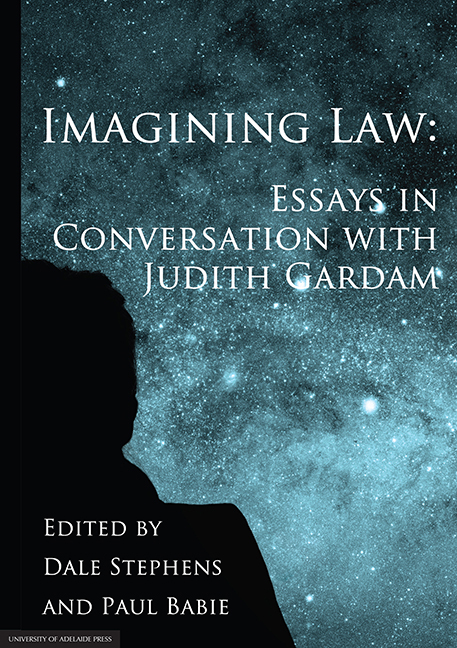Book contents
- Frontmatter
- Dedication
- Contents
- List of Contributors
- Acknowledgements
- 1 Introduction: Seeing Further over the Horizon – A World of Limitless Possibilities
- Part I
- Part II
- Part III
- Gender and Armed Conflict
- 5 Prosecuting Conflict-Related Sexual Violence Crimes: How Far Have We Progressed and Where Do We Go from Here?
- 6 The Construction of Knowledge about Women, War and Access to Justice
- 7 Laws, UFOs and UAVs: Feminist Encounters with the Law of Armed Conflict
- 8 An Alien's Review of Women and Armed Conflict
- 9 The Law of Armed Conflict and the Operational Relevance of Gender: The Australian Defence Force's Implementation of the Australian National Action Plan
- Gender and Feminist Concepts
- Theoretical Issues
- A Selected Bibliography
- Table of Cases and Materials
- Selected Index
6 - The Construction of Knowledge about Women, War and Access to Justice
from Gender and Armed Conflict
Published online by Cambridge University Press: 05 August 2017
- Frontmatter
- Dedication
- Contents
- List of Contributors
- Acknowledgements
- 1 Introduction: Seeing Further over the Horizon – A World of Limitless Possibilities
- Part I
- Part II
- Part III
- Gender and Armed Conflict
- 5 Prosecuting Conflict-Related Sexual Violence Crimes: How Far Have We Progressed and Where Do We Go from Here?
- 6 The Construction of Knowledge about Women, War and Access to Justice
- 7 Laws, UFOs and UAVs: Feminist Encounters with the Law of Armed Conflict
- 8 An Alien's Review of Women and Armed Conflict
- 9 The Law of Armed Conflict and the Operational Relevance of Gender: The Australian Defence Force's Implementation of the Australian National Action Plan
- Gender and Feminist Concepts
- Theoretical Issues
- A Selected Bibliography
- Table of Cases and Materials
- Selected Index
Summary
INTRODUCTION
How do academics and activists obtain their knowledge of the experiences of women and then utilise that knowledge to frame debates about the rights and interests of those who have been subjected to violence? As scholars, we engage in debates about the framing of legal rules and we critique and perhaps help to create the systems that claim to be responsive to the rights and interests of women. Although Emeritus Professor Judith Gardam [Professor Gardam] would describe herself as a scholar, it is possible to argue that she, like many others, by opening up areas of debate and challenging our conceptions about the structure of the law, fits into the category of individuals sometimes described as ‘transboundary actors’. Such individuals engage with international law and international politics, sometimes directly, sometimes through organisations and, it could be argued, through their publications. Scholarship has the capacity to influence the manner in which issues are debated nationally and internationally.
International law and international relations scholars have focused on the role of non-state actors in the formulation of legal rules and in the delivery of services connected to development, human rights and gender equality. Some authors have considered the manner in which groups and individuals who might be referred to as transboundary actors have challenged the state-centric ethos that has permeated international law and international institutions. In part, these individuals and groups seek to participate in what might be termed international governance. However, many also recognise and discuss the negative power of the law, both in terms of its content and the manner in which the language of the law shapes our understanding of world events and the experiences of individuals. Academics are one of the groups that have contributed to, and will continue to develop, the content of international law and its application by international institutions. The work of academics often contains challenges to the structure of the law, while at the same time demonstrating mastery of its rules.
Through her writing on international humanitarian law (IHL), Professor Gardam has continuously worked to demonstrate both the failure of the present rules to protect and foster the interests of women and the attitudes that influence the manner in which those rules are interpreted and implemented.
- Type
- Chapter
- Information
- Imagining LawEssays in Conversation with Judith Gardam, pp. 133 - 152Publisher: The University of Adelaide PressPrint publication year: 2016



